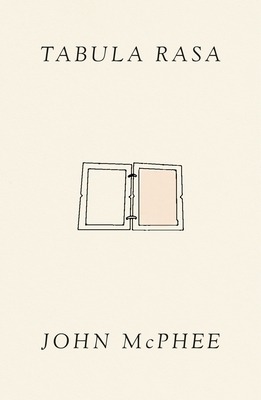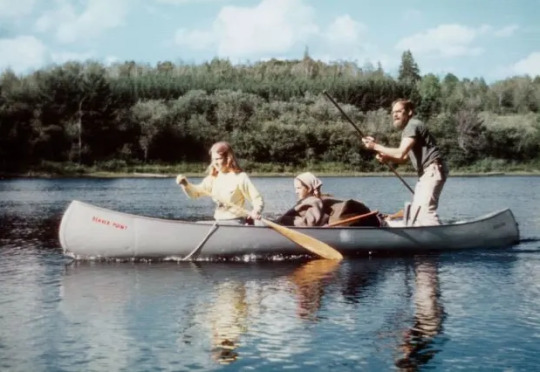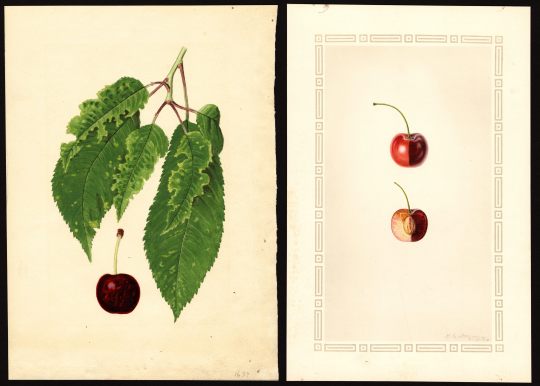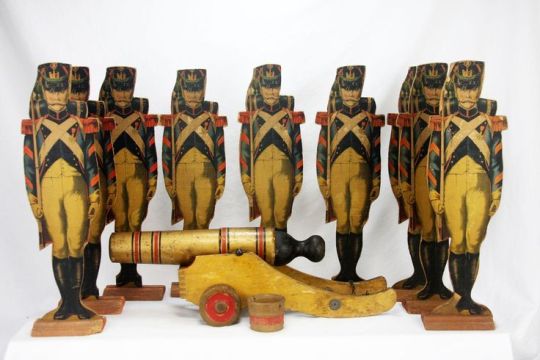#john fleagle
Explore tagged Tumblr posts
Text
Tagged by @incurablyromanticsblog. Thanks!
Tagging @heavensmortuary @nitrateglow @holyloved and anybody else who wants to try this challenge!
#ask#I'm more of a songs girlie myself BUT I think this is a fun challenge#Also yeah TQID is a cliche choice for The Smiths but you know WHAT?? It is the best for a reason!!#Feel like I'm ignoring wide swaths of my music taste with this one but I tried to go for albums I listen to (mostly) consistently#again I'm a song girlie#Iona#Itsuro Shimoda#The Smiths#Frank Sinatra#John Fleagle
7 notes
·
View notes
Text
youtube
"The Hern" A medieval song sung by John Fleagle
#the poll about old songs made me want to post this#it's a beautiful song#you should listen#somebody please join me in liking it because I am all alone#I really like the beauty and strangeness#it's a little bit arthurian#songs#music#the hern#john fleagle#medieval#medieval songs#medieval music#history#historical songs#Youtube
1 note
·
View note
Text
Una Sanosa Porfia - Trio LiveOak
In trying to acquire this entire recording again I learned that Frank Wallace had passed away. The world is a poorer place without him in it.
John Fleagle has passed on as well, hopefully they're playing and singing together again in paradise.
#Frank A Wallace#Nancy Knowles#John Fleagle#music from the Spanish Renaissance#Trio LiveOak#SoundCloud
1 note
·
View note
Text
Yule & Winter Solstice playlist ❄️
Carol Batton - Winter (poem)
Lothlorien - The Black Cat
Hagalaz' Runedance - Das Fest der Wintersonne (Ein Weihnachtslied)
Emian - Evoè evoè
Antti Martikainen - Folktale
Jean Luc Lenoir - King of the Fairies
Aine Minogue, DruidStone - Noel Nouvelet
Faun - Odin
Kate Price - The Isle of Dreaming
Anúna, Michael McGlynn - Codhlaím Go Suan
Sowulo - Yule (acoustic)
Deanta - The Druid's Mountain: The Druid's Spell/ The Misty Mountain
Chuck Bramlet - From Samhain to Imbolc
Quadriga Consort - 'Twas in the Moon of Wintertime (Huron Traditional)
John Fleagle - Blow Northerne Wynd
Jean Luc Lenoir - Näckens Polska/ näckspolska
Johannes Bornlöf - Nocturnal Waltz
Gary Stadler, Wendy Rule - Midwinter
Mark Hanson - Garol of the Birds
Arjan Wilmsen - Risin Og Kellingin
Forndom - Yggdrasil
Brendan Perry - Wintersun
The Zombies - Time of the Season
The Bird And The Bee - Carol of the Bells
Worcester Cathedral Choir - Coventry Carol
Scala & Kolacny Brothers - Wintersong
Anúna, Michael McGlynn - St. Nicholas
3rd Secret - Winter Solstice
Spell Songs, Julie Fowlis, Karine Polwart - The Snow Hare
Anúna, Michael McGlynn - Gaudete
Gary Stadler, Singh Kaur - NightSong
Gareth Malone etc. - Walking In The Air (from "The Snowman")
Forndom - Återkomst
Forndom - Den Grymma Hästen
Emian - La giga del lupo
Ludvig Swärd, Forndom - Jakten (piano version)
Jonna Jinton - The Winter's Lullaby
Dzivia - The last Dawn
Björk - Frosti
Björk - Jólakötturinn
You can listen this music list on spotify 😊🎶🎶🎶
4 notes
·
View notes
Text

The largest and smallest living primates: Gorilla gorilla & Microcebus murinus (mouse lemur)🦍
Inspired by a figure in Size and Adaptation in Primates by John Fleagle (a chapter in Size and Scaling in Primate Biology ed. William Jungers).
4 notes
·
View notes
Text
blow northerne wynd, john fleagle, 2004
adapted from a middle english poem written c. 1300, titled "ichot a burde in boure bryht" ("i know a lady in a bright tower")
2 notes
·
View notes
Text
Rules: put music on shuffle, list ten songs, tag people. I was tagged by @buckybarnesss 💙💙💙
Raksit Leila by Mashrou' Leila
Patapan (traditional Christmas song), version by John Galway choir
Fratres for Strings and Percussion by Arvo Pärt
Air on a G String by Johann Sebastian Bach
The Show Must Go On by Queen
Hört ma' zu! by Bodo Wartke
Raudoni Vakarai by Ieva Narkute
Son ar Chistr (Breton traditional), version by John Fleagle, The Revels Men Chorus, The Breton Band
Aicha by Khaled
Roll the Old Chariot Along (tradtional sea shanty), version by David Coffin
tagging @quarantineddreamer @andorology @rebelandrichgirl @pinkpepsican @sigelfire @grimm-lynn @kamillahn @possiblywonderful @justarandomace @electron-flavored @bebeocho @astromechs
#tag game#literally what is this selection lol#no I mean these all fuck I stand by this fully#idk if that's ten ppl and I refuse to count#also I promise I will get to any all the other tag games eventually :´´´)#they're buried in my likes somewhere. deep.
9 notes
·
View notes
Text
Death and the Lady | John Fleagle
0 notes
Text
it's just me and poor-quality videos of russian men's covers of john fleagle's adaptation of blow northerne wynd against the world
0 notes
Text
Scriptor Honoratus Senex
How many writers, living or dead, have had an active, acclaimed publishing career that extends for almost seven decades? The number might be as low as one, but fortunately that one is still with us, still writing and still publishing. John McPhee is the cream of the crop where literary non-fiction is concerned, having won almost every award possible for his work, including the Pulitzer Prize. He’s also been a mentor to multiple generations of younger writers who themselves have become award-winners, thanks to his life-long connection to Princeton University.
His most recent book, Tabula Rasa, is his 32nd (discounting many other recompilations of his work), and it chronicles many (though hopefully not all) of his writing projects that did not turn into finished, full-length products. As soon as I heard about its imminent release, I knew it would be the subject of intense discussion between me and another major McPhee fan, writer and friend of Madison Books Matthew Fleagle. Our conversation about the book (as much of it as I thought blog readers would tolerate, anyway) is below.
--James
—————————————————

James: The more love you feel, the greater the risk of heartbreak. Which is why I was both eager and hesitant to read Tabula Rasa. Maybe you felt the same way? Our love for John McPhee is well documented and well earned–the man has won the Pulitzer Prize, published more than thirty books, and written millions of words, not one of which was placed on paper without the utmost care. But the man is 92, and understandably isn’t undertaking projects as grand or ambitious as he once did. Still, when I read that in his new work he “looks back at his career from the vantage point of his desk drawer, reflecting wryly upon projects he once planned to do but never got around to,” I worried (heck, I assumed) that this would be a binful of substandard pencil shavings. Keeping the old man busy and helping him clear some long-accumulated clutter is the least we can do after all he’s given us, right? Those were my thoughts after obliging another of our mutual nonagenarian faves, John Barth, with a read of his most recent collection. Rueful reminiscence and mild disappointment was not what I got from Tabula Rasa, though. McPhee hasn’t played all his cards yet, and has some tricks remaining.
Matt: I was certainly eager. If I had thought to be worried going in, I'd have dropped that anxiety pretty toot sweet. As always, McPhee roped me in right away. I happen to be working my way through a box of old letters from the previous two generations of my dad’s family to determine what should be done with them (the letters) and so McPhee’s mechanism of the “letter in response to a daughter" as an opening to this journey through his file cabinet of writing project ideas– “Dear Jenny: I didn’t go there with Tim and Wendy. We drove from France straight to northern Portugal . . .” –quite grabbed my attention. Once lasso’d, I was fully wrangled by the third piece’s conceit of the unfinishable project as a means of extending an old man’s life. As you know, that’s the sort of thing I stew on while doing dishes, weeding or performing really any activity that requires me to respire but not necessarily think much about what I’m doing. So I was immediately engrossed.
I kept being startled at first by the brevity of these works. This book seems a little like a printed blog. The pieces are about that long and like good blog posts, they just get you fully interested and then they end, leaving you wishing for more, or in my case propelling me on to the next one. McPhee binging. Most of them end abruptly but they end elegantly, often with a zinger quote. But there is clearly much more in most of these pieces that could be researched and presented, so it's easy to see why McPhee had been holding onto them. I say most, not all, but we'll get to that. How about you? Did you find these stories satisfying though they were such short outings?

James: Very. That’s the most invigorating aspect of this book–even in the twilight of his career, there’s novelty. He made his bones with a kind of writing that’s been described (in a phrase I love and have quoted before) as “requiring a certain readerly patience.” Meticulous descriptions of people and place, methodical accumulation of information, powerful conclusions built with time and pages . . . in McPhee’s house there are many mansions, and you don’t hurry through them. But in Tabula Rasa he’s quicker, lighter, and snappier. The entries here aren’t truncated versions of his older essays, they have a form of their own, and he’s as dextrous with it as he has been in his more expansive books.
With that dexterity, we get the unexpected zingers you mentioned. Who knew McPhee could throw off punchlines like Henny Youngman? The bit about environmental activist Edward Abbey is the best example, I think. What a putdown. I guess Abbey gets credit for the remark, but McPhee knows exactly how to structure the anecdote for full effect. I hadn’t thought about Abbey for years, but it made me want to read more about him. Sounds like you felt the same way about most of the subjects, but you mentioned some exceptions?
Matt: I did, but I only meant that I suspect some of these stories were never intended to be longer. McPhee introduces or extraduces a lot of these pieces with notes about having intended to do a full treatment of the subject and why he never did (profiles of Meredith Willson or of his mother, Mary, for instance, or explorations of Bing cherries or river deltas), but others are little anecdotes standing on their own feet, proffered without a word about any erstwhile plans for them. “Outcroppings of Washington Road'' is one such; it’s just a little story about a number of different things, and the piece can be said to be loosely wrapped around McPhee’s magnum opus, Annals of the Former World, which is a project he most definitely did get around to. “Outcroppings'' is in my view the perfect little McPhegian outing–it's like a canoe trip among tall reeds; there's a beginning, a sudden 90-degree turn, an apparent dead end and restart that makes you wonder where the old man is going, then an unexpected twist, and a final rejoining of the main stream as the ideas come braiding together at the end. McPhee's mastery of structure and timing, as you say, is never more evident than in these snack-sized pieces.
And I don't mind at all the professor just remembering out loud. To pursue the metaphor, I can imagine sitting in a slowly drifting canoe with the author’s voice behind me (he would be the aft paddle, naturally) occasionally breaking a mosquito’d stillness with one of these little stories, each a delightful non sequitur from the one before.

James: The image of this author as an excursion guide is perfect, first because he’s spent so much time being in and writing about America’s still-wild lands, and second because his work always gives the impression that you’re accompanying him on a journey. He’s a wise cicerone of the great outdoors who shares knowledge as well as the experience of obtaining it.
Hmm, the praise is getting a little treacly. Is there some reservation you want to express, lest we sound too sycophantic?

Matt: McPhee can occasionally pitch low and inside. I haven’t yet fully forgiven him for expecting me to agree that no one knows or cares who Wilford Brimley is while simultaneously tossing off references to people I’d never heard of, undermining his own point that you shouldn’t make references in your work to people or things your readers have never heard of. That was a different book, but “points of reference” can still be an issue for me. I spent the whole of this book’s “Time-Out on the Floor” chapter waiting for him to explain to me what time-out on the floor meant, which he never did. I got an idea by the end, but let’s just say readers who follow college athletics or were reared or schooled in the East will have a slight advantage when sports is the topic or when Princeton names are dropping. A significant number of these pieces revolve around athletes, professors, administrators and other figures from McPhee's long career as an educator and even longer life as a sports fan. Still, McPhee usually makes quick work of getting the reader up to speed, and I found myself invested in every story even when I felt some initial disorientation.
I'd like to mention some highlights that I particularly enjoyed but I'm hogging the page and we may be running out of room, so you first. Besides the Edward Abbey coup you mentioned, what were some of your favorite moments?

James: You’ve cited one already. As a Northwesterner, I felt a swell of pride when I ran across “Bourbon and Bing Cherries.” Plenty of good stuff in there about McPhee’s edible and potable interests, but the fact that the most popular cherry cultivar in America was named after the Chinese foreman of an experimental orchard in Oregon, and was so labeled in the 1870s, just as America was gearing up for the racist Chinese Exclusion Act, is the most compelling part. Reminds me of how Seattle’s white founders were able to stretch their imaginations far enough to respect and name their city after an indigenous leader. I was also fond of the productively rambling longer pieces, including “Sloop to Gibraltar” with its portrait of the ancient merchant mariner Captain Washburn, and “The Dutch Ship Tyger,” which links a 17th-century trading vessel, future senator and former basketball player Bill Bradley, and the start of McPhee’s career with The New Yorker. But enough of that; hit me with your highlights.
Matt: So many, but off the top of the old bean:
"December 19, 1943” –It's difficult to say anything about this piece that isn’t a spoiler, except that McPhee doesn’t take this story in the direction that he could have taken it and might even have been expected to take it, but takes it somewhere else, which is why he’s John McPhee and the rest of us are not.
“Ray Brock” –This is one of those delightful little bundles of facts that make you think you know something, but McPhee never explicitly makes the call. This story is about both Ray Brock and Ernest Hemingway, but when it’s about which is the question and he doesn’t directly answer it, only gives us a fact that pushes us toward a certain conclusion.
"Joseph Henry House" –This is a great collection of little scenes set in the eponymous house, just the thing I like. Within a few sentences McPhee moves from architectural history to an intimate little memory and then to the large and sweeping thought of Princeton being visited and honored by colleges hundreds and hundreds of years older than itself. In this piece and several others, McPhee doesn’t seem to be trying to keep the ideas linked and tightly controlled; they seem to be like spirals, like flowers opening or like fireworks exploding.

"Walking the Province Line" –Out of nowhere, this! It’s a longer piece, and next to these little tarns it feels like one of McPhee’s oceans. One wonders as one is reading it why it’s in this book of unborn pieces, because it feels dense and researched. I was all over maps following this one, the way I follow Robert MacFarlane when he goes a-walkin’.
I'd say the same about "La Torre Pendente," which feels a little more like a “normal” McPhee piece. Of course it’s much shorter, but the treatment seems to be a longer look. More research was done, most of it long ago. The details all seem to be there. This one, like so many in Tabula Rasa, makes me imagine McPhee as a Texan defending the Alamo, opening up one musty manila folder after another, loading everything into the chamber each time, all the gunpowder, all the details, whether it is much or little, and pulling the trigger. For an old McPhee fan, there are very few misfires here.
James: A martial metaphor fitting for a writer who has long pursued his craft with military discipline, here commanding squads and platoons instead of his usual brigades and divisions. Although that sounds darker than I intended. Reading this collection is fun, as if McPhee is letting us play with a nice set of vintage toy soldiers.

We’ve pretty well established how rewarding Tabula Rasa is for his established fans (McPhegians, you called us earlier, which I much prefer to an appellation I’ve seen elsewhere, McPhinos), but as a bookseller, I have to consider how it comes across to someone for whom it really is a blank slate. I’m confident that utter neophytes (McPhledglings?) will be entranced by it. Each bite-sized chapter is tremendously satisfying, yet even devouring them all at once leaves one hungry for dessert. I’m not sure how he pulls off this rock-skipping magic, making weighty substance move with light and airy charm, but it must have something to do with the way time has distilled his vast experience into a potent, efficient brevity. A good lesson for us–as enjoyable as this conversation is, we should probably suspend it to give people a chance to read Tabula Rasa instead of our yammering.
Matt: Yup. It’s all in his wrist.
1 note
·
View note
Note
Can we get some cursed facts about this really strange primate colloquially called "Humans" please? I simply cannot remember how to spell the scientific name, and I don't want to embarrass myself in front of you
well I'm AFRAAIIIID that you're going to have to be more specific, because "human" is actually a pretty big group, phylogenetically speaking!
specifically, it's every primate in the genus Homo.

<art src: John Fleagle>
this means that "human" isn't just the term for the only extant species from this group, H. Sapiens, "human" is also the proper term for all of the extinct members!
H. Neanderthalensis was a human. So was H. Erectus.

H. Habilis, H. Floresiensis, and H. Denisova were all humans.

which makes perfect sense, actually, because Homo is just the Latin word for "human" in the first place! fancy fancy.
but as anyone who's ever had to sit through a 300-level STEM class knows, Homo has another definition, this time from Greek, meaning "same".

homodont. homophone. homologous. homogenized.
but doesn't that also make perfect sense? bones aside, if all of the extinct species of human were resurrected right now and you ran into, say, a Denisovan and a Neanderthal on the street, wouldn't you recognize them?


"You are like me. We are the same."


"We are the same."

<art src (all): Alfons & Adrie Kennis>
5K notes
·
View notes
Text

[Additional Image Description: Fanmix cover for "& I'm feeling right at home," a fanmix for Brian Jeeter from The Strange Case of Starship Iris. A collage of photos and blocks of color in various rectangular dimensions, all framed by red borders between them. The image across the top of the cover is an orangey closeup of the sun in space. The title and the subtitles are in blocks with a cream background and two different brown backgrounds, respectively, all in a serif font. There's a photo of a cutting board with a knife, spinach leaves, cherry tomatoes, a pepper, and an avocado, a photo of old books on a shelf, and a photo of a person's hand wearing a ring. End Additional Image Description.]
The Strange Case of Starship Iris fanmixes - 6/? The Crew of the Rumor - 3/5
BRIAN JEETER, TRANSLATOR OF THE STARSHIP RUMOR
Miri It Is Whil Sumer Ilast - The Sherwood Consort // Midnight Movie - Cave Flowers // Up Too Late - Best Foot Back // Waterbound - Dirk Powell // Bryd One Breere - Brian Kay // Nowhere to Go - The Acoustic Live Session - Hurricane Love // Here We Go - WILD // Blow Northerne Wynd - John Fleagle // Language of Love - Skyline Motel // Shipwreck Song - The Altogether // The Parting Glass - Henry Jamison (feat. Darlingside) cover // Can't See the Train - Joe Stevens // Don't Tell Me - Hudson Taylor // Let Me - Night Tales // Never Gonna Give You Up in Old English - The_miracle_aligner // Legends Never Die - Orville Peck with Shania Twain
(YouTube, Spotify, and translations links in the notes!)
#brian jeeter#tscosi#starship iris#the strange case of starship iris#id in alt text#described#free use images#finally have time to finish doing the gradient and otherwise putting together the post for this! which yes the mix has been#up for weeks now shh#translations to come momentarily (well more like translation for miri it is since i don't know middle english and#don't know which translations of bryd one breere or blow northerne wynd are most accurate)#(miri is apparently one of the oldest songs in the english language so it has its own wikipedia page though!)#music#fanmix#brian's cowboy energy cannot be denied and here is the EVIDENCE#plus emotions about his grief for alvy
12 notes
·
View notes
Text
Tag 9 people you want to get to know better!
I was tagged for this by @moorishflower, thank you!!!
three ships: I’m just going to go by the last ones I’ve read (and I haven’t read much at all recently): 1988, Brad/Nate (this is Gen Kill, not self-insert), Speirs/Lipton (yes yes from Band of Brothers).
first ever ship: Lennon/McCartney LMAO. I was a regular on a Beatles forum in the mid-2000s and there was an explicit rule against m/m fic being posted there, because that was evilgrossbaddirtynaughty, but there was no rule against OC/Beatle fics being linked. This was pre-ao3 but I remember distinctly that one of the links went to a tiny fic database which in turn contained a single super mild slashy fic (aka John and Paul kissing). It also called that type of fic “slash”, so suddenly I knew it 1. existed and 2. what to google for. This is how I found my way to LJ, and here we are, almost 20 years later lol.
last song: John Fleagle’s cover of Son ar Chistr (song of cider)
last movie: I don’t really watch a lot of movies, but I think a rewatch of Spirited Away?
currently reading: All Quiet on the Western Front by Erich Maria Remarque, and Medieval English Lyrics edited by R. T. Davies. I’ll finish All Quiet probably later tonight or tomorrow and I’ll probably begin reading a modernized edition of the Winchester manuscript’s version of Le Morte Darthur by Thomas Mallory
currently consuming: "boterkoek” which is best translated to butter cake I guess? It’s dense and buttery and sweet and clearly very unhealthy but the flavour and texture are superb.
currently craving: honestly the thing I want most but also least rn is my thesis grade, I’ve been waiting for 3 weeks so I’m hoping it’ll be in sometime in the next week. I‘m ready for the entire SituationTM to be Over Officially, lol.
Let’s see if I can get to 9... @t-eminence @bradmarchandapologist @towez @plattelands @toewsy @nebulein @jonny-toews @undeuxtoews and @thisishowgalaxiescollide
4 notes
·
View notes
Text
Death and the Lady | John Fleagle
0 notes
Text
john fleagle has the most beautiful voice possibly ever. listen to him
0 notes
Photo

GREAT College textbook on this topic, it was a previous edition, I got used on amazon for a very low price SUPER HIGHLY RECOMMEN Great, cheap college textbook on this topic. While not the latest edition, for my purposes, it was an incredible book to explore this topic. SUPER HIGHLY RECOMMEND Go to Amazon
Good overview of primate anatomy behavior and ecology Good overview of primate anatomy behavior and ecology. Not a detailed examination of any particular topic but extensive references are provided for those interested in pursuing a line of thought in more detail. Go to Amazon
Five Stars The best I have read. Go to Amazon
Four Stars Slight damage as expected. Was delivered on time. Go to Amazon
Excellent book! Covers a wide range of topics and ... Excellent book! Covers a wide range of topics and goes into a decent amount of detail. Very well done. Go to Amazon
Five Stars great Go to Amazon
Five Stars I like it. Go to Amazon
1 note
·
View note